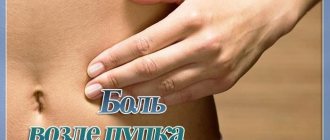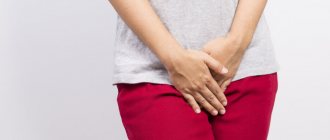Cystitis is one of the most common bladder diseases in everyday life. With this disease, the lining of the bladder becomes inflamed. A person suffering from cystitis experiences a frequent (and often false) urge to urinate, pain and discomfort when urinating, and a feeling of an incompletely emptied bladder.
Despite the unpleasant symptoms, cystitis is treated with indifference, equating it almost to a runny nose. But if you lose time, then cystitis, which can be easily gotten rid of at the initial stage, can develop into a chronic form and lead to the development of interstitial cystitis , which cannot be treated therapeutically. Sometimes cystitis can lead to pyelonephritis and other complications. Therefore, at the first symptoms, consult a urologist!
Cystitis in women
1 Diagnosis of cystitis in women
2 Diagnosis of cystitis in women
3 Diagnosis of cystitis in women
Cystitis in women is much more common than cystitis in men. We can say that this disease is more “female”. Among female urological diseases, cystitis is the undisputed leader. Almost every second woman has experienced all the “delights” of cystitis at least once in her life. Thanks to the short and wide urethra, infections from the female genital organs quickly reach the bladder. Cystitis in women quickly passes from acute to chronic form.
Women also often develop cystitis during pregnancy (when the growing uterus begins to put its weight on the bladder).
With cystitis, a woman’s quality of life deteriorates. She has to dress warmer so as not to “catch a cold”, refrain from intimacy with her loved one, and reduce her time in public places, at holidays and events due to inflammation of the bladder. The woman does not get enough sleep (since the urge to urinate continues both day and night), begins to feel worse, experiences psychological discomfort and looks tired.
Prevention
It is better not to get sick than to be treated. Of course, often the development of cystitis does not depend on the implementation of any recommendations - for example, during pregnancy or surgery. But in everyday life you should adhere to these rules:
- compliance with hygiene rules - do not introduce infection from the rectum, wash yourself in a timely manner, do not use aggressive detergents for washing;
- avoid hypothermia;
- change pads and tampons regularly so as not to provoke the growth of bacteria;
- Closely monitor the health of the genitourinary system, treat any problems so that they do not get worse.
Following these simple rules will allow you to never find out what cystitis is, or prevent a recurrence of the disease if you have already had such a sad experience.
ONLINE REGISTRATION at the DIANA clinic
You can make an appointment by calling the toll-free phone number 8-800-707-15-60 or filling out the contact form. In this case, we will contact you ourselves.
Cystitis in men
1 Diagnosis of cystitis in men
2 Diagnosis of cystitis in men
3 Diagnosis of cystitis in men
Cystitis in men is a rather rare phenomenon; the disease can appear as a result of an inflammatory infection, due to which the urethra, ovaries and prostate gland begin to suffer.
To make a correct diagnosis, sometimes men only need to undergo a rectal examination, which will help determine whether there is an enlarged prostate. If the inflammation continues long enough, you will need to do an ultrasound and intravenous urography.
Preventive actions
Treatment of exacerbations of chronic cystitis involves the development of recommendations for preventing relapses. A comprehensive diagnosis helps with this. After establishing the cause of the pathology, the doctor may prescribe immunostimulants and drugs to support hormonal levels. Adjusting the drinking regime and diet help. Physiotherapeutic procedures and gymnastics have proven themselves to be effective preventive measures.
Treatment and recovery services for chronic cystitis are offered by the Dr.AkNer clinic. We employ urologists and gynecologists with extensive experience in successfully treating even the most complex cases. Specialists accept appointments by appointment, so you don’t have to spend time in queues.
Cystitis in children
Cystitis in children is an infection well known to pediatricians, accompanied by painful and frequent urination, with a possible increase in body temperature and fever. Cystitis occurs in children of any age and both sexes, but in girls due to anatomical features it is more common. Cystitis caused by chlamydia occurs in children (a child becomes infected due to the presence of chlamydia in his parents or when the child violates hygiene standards and frequently visits swimming pools and saunas). Also, cystitis in children can appear with weakened immunity.
The pain and burning sensation that a child experiences when urinating can trigger acute urinary retention.
Can cystitis be cured at home?
You can, of course, but only if you follow your doctor’s recommendations. Cystitis is an outpatient disease and can only be treated by the patient himself on an outpatient basis. Hospitalization is necessary only if there are complications, and not all of them.
If you meant treatment with folk remedies, I’ll be honest, it’s a frequently used technique among our people, but it’s not the right choice. Even myocardial infarction and acute appendicitis can be treated with traditional medicine, but not for everyone and not always. Considering the knowledge of the problem, it is better to treat it together with a specialist.
Cystitis is treated with antibacterial drugs - PERIOD. But the medications must be correct; even herbal remedies have an antimicrobial effect. And the most illiterate and dangerous thing on a UNIVERSAL scale in this situation is the uncontrolled use of antibiotics, especially fluoroquinolone ones. Take medications only as prescribed by a doctor.
Reasons for the development of cystitis
As a rule, cystitis is provoked by infection (most often E. coli, staphylococci, streptococci, etc.). Microorganisms begin to multiply in the mucous membrane and destroy it.
Cystitis can also be caused by sexually transmitted diseases (ureaplasmosis, mycoplasmosis, etc.).
Cystitis can also occur as a consequence of other urological diseases, such as inflammation of the kidneys, inflammation of the ureters and disorders of the prostate gland.
Other factors that contribute to the development of cystitis may include:
- general hypothermia of the body, especially the legs;
- poor personal hygiene;
- hormonal changes and hormonal imbalance (in women - pregnancy, menopause);
- stones in the bladder (urolithiasis);
- narrowing of the urethra;
- trauma to the urethra;
- pelvic organ prolapse;
- diabetes;
- weak immunity;
- prostate disease, leading to incomplete emptying of the bladder;
- irritating scented soaps, shampoos and bubble baths;
- stress.
Therapy
The treatment regimen for chronic cystitis will vary depending on the pathogen. In addition to taking medications, it is important to maintain a healthy lifestyle and diet. For a speedy recovery, rest and light food are desirable. The drinking regime is plentiful; the use of diuretics is recommended to remove pathogenic microorganisms.
Prescriptions may consist of the following medications:
- antibacterial (when pathogens are detected on crops);
- antispasmodic (eliminate muscle spasms, relieve pain, promote urine evacuation);
- anti-inflammatory (improves the condition of the mucous membrane, promotes epithelial regeneration).
Herbal medicine is effective as part of complex treatment. It is important to understand that the course prescribed by the doctor must be completed in full. Taking medications should not be stopped after the first improvement, because the disappearance of symptoms does not indicate complete recovery.
After a course of antibiotics, if necessary, the doctor may prescribe restorative therapy, which will be aimed at normalizing the microflora of the vagina and gastrointestinal tract.
Types and forms of cystitis
Like other diseases, cystitis can be acute or chronic .
Acute cystitis
Acute cystitis manifests itself differently in all people; it can last from 2 to 10 days and occur with alternating periods of exacerbation and remission.
The acute form of cystitis is characterized by fever, chills, general weakness, difficult and painful urination. Urine comes out in small portions, sometimes requiring effort to pass it out. During urination, the patient feels a burning sensation in the urethra, and after it - a pain in the lower abdomen. In acute cystitis, a picture of general poisoning of the body may be observed (body temperature 38-40 degrees, weakness, sweating, dry mouth, thirst). This may indicate that the infection has spread to the tissues of the kidneys and renal pelvis, leading to the development of pyelonephritis. In this case, emergency medical care is required.
Chronic cystitis
Chronic cystitis is characterized by waves of exacerbation and decline of the disease. There is a frequent urge to urinate and pain when passing urine. In chronic cystitis, the symptoms are constant, only their intensity changes during treatment. Microorganisms in the urine in this form of the disease are not detected during laboratory examination. Tuberculous cystitis poses a particular danger.
Forms of cystitis in chronic form:
- latent cystitis (has hidden, implicit symptoms, characterized by the absence of obvious exacerbations);
- persistent cystitis (exacerbations occur more than 3 times a year);
- interstitial cystitis (constant, sometimes unexplained pain in the bladder, frequent exacerbations, deformation of the bladder walls).
There are also other forms of the disease - for example, postcoital cystitis ( cystitis after sex ), as well as “honeymoon cystitis” (occurs in women after defloration). The mechanism of postcoital cystitis lies in the anatomical feature of the female urethra. During sexual intercourse, vaginal mucus is thrown into the urethra, which causes irritation and inflammation. The disease can be triggered by frequent changes of sexual partners.
“Honeymoon cystitis” occurs against the background of disturbances in the vaginal microflora that already exist at the time of the onset of sexual activity. The same “thrush” can cause acute cystitis in a woman. Sexual intercourse is accompanied by abundant discharge of vaginal microflora into the urethra and bladder, which until now have not been subject to such “close” contact with infection.
1 Gynecological examination for cystitis
2 Laboratory diagnostics for cystitis
3 Ultrasound of the genitourinary tract
Useful tips
To make medications and folk remedies for cystitis more effective, it is recommended to adjust your lifestyle, in particular:
- rest more often and follow a restorative regime;
- adhere to an adequate drinking regime;
- eat a balanced and varied diet;
- avoid visiting the sauna, bathhouse and swimming pool;
- temporarily eliminate intense physical activity.
- Grabe M, Bjerklund-Johansen TE, Botto H, et al. European Association of Urology. Guidelines for Urological Infections, 2015 - (accessed 06/02/2021).
- Russian clinical guidelines Urology Edited by Yu.G. Alyaeva, P.V. Glybochko, D.Yu. Pushkar, Moscow 2021 - (date of access: 06/02/2021).
- Zaitsev A.V., Kasyan G.R., Spivak L.G. Cystitis, 2021 - (date of access: 06/02/2021).
- Guide to urology / ed. ON THE. Lopatkina. 1998
- Khalilova U.A. Skvortsov V.V. Ismailov I.Ya. Lugovkina A.A. Proleyskaya N.A. Cystitis, 2021 — (date of access: 06/02/2021).
- Kulchavenya E.V. Alternative treatment for patients with acute uncomplicated cystitis - is an antibiotic always needed?, 2021 - (date of access: 06/02/2021).
- Ivanov V.V. Herbal medicine for acute cystitis / V.V. Ivanov, V.E. Khitrikheev // Bulletin. East Siberian Scientific Center of the Siberian Branch of the Russian Academy of Medical Sciences. - 2010. - No. 3. - P. 72–75.
- Kukes V.G. Herbal medicine with the basics of clinical pharmacology / V.G. Kukes. – M.: Medicine, 1999. – 192 p.
- Malkoch A.V., Filatova N.N. Urinary tract infection and the role of herbal remedies in its complex therapy. Attending doctor. 2015;3:1–4. — (date of access: 06/02/2021).
- Instructions for use of the drug PHYTOLYSIN® Paste for the preparation of a suspension for oral administration.
Diagnosis and treatment of cystitis
The key to quick and effective treatment of cystitis is correct diagnosis and timely administration of appropriate therapy. Our center carries out all the necessary examinations for this disease: urological and gynecological examinations, ultrasound of the genitourinary tract, urine and blood tests and cystoscopy. Experienced urologists will help you get rid of the disease as soon as possible. The main thing is to contact a specialist at the first signs of the disease, so that cystitis does not become your “eternal companion.”
Reading reviews on the Internet about the treatment of cystitis, you may come across methods of treating cystitis using folk remedies or, for example, the widely advertised drug Monural. But self-medication in this matter is absolutely unacceptable! Only a urologist will be able to select the correct treatment regimen for you, including effective drugs for the treatment of cystitis, and will also prescribe the necessary follow-up examination after cystitis to prevent relapse.
We know how to treat cystitis! The method of treatment of cystitis in the multidisciplinary clinic "MedicCity" is selected individually by a urologist, taking into account the characteristics of each patient and examination data. Treatment of cystitis should be aimed both at suppressing the source of infection, and at increasing the body’s immunity and restoring normal vaginal microflora in women with cystitis.
How to relieve the symptoms of cystitis before consulting a gynecologist
Rules that you can begin to follow even before going to the doctor and together with the recommended therapy:
- Bed rest. This will support the body in the fight against the disease.
- As mentioned above, drinking plenty of fluids will speed up your recovery.
- Food should not be spicy or salty. It is best to eat foods high in calcium - dairy products, some vegetables.
- You can and should use herbal decoctions and special mixtures. Also in pharmacies there are tablets with extracts of the same herbs. If the disease is not very severe, such treatment may be sufficient. But it is better for a specialist to give recommendations regarding herbal treatment.
Urologists
Erkov Igor Viktorovich
Urologist andrologist
Cost of admission 2500
₽
Make an appointment
Fomenko Alexander Pavlovich Urologist andrologist
Cost of admission 2500
₽
Make an appointment
Question answer:
What to do after treatment of acute cystitis?
At the end of the course of therapy, the patient must follow the doctor’s recommendations to prevent exacerbation of chronic cystitis. After an illness, the patient is recommended the following:
- Avoid hypothermia. Avoid sitting on cold surfaces. Do not swim in cold waters. Dress appropriately for the weather.
- Don't wear tight underwear. Avoid synthetic clothing.
- Maintain strict personal hygiene.
- Don't use tampons.
- When working in a sedentary position, do a five-minute warm-up every hour.
- Avoid stress and physical fatigue.
- Treat colds promptly.
- Review your diet. Avoid spicy, fried, fatty foods. Limit your salt intake. Reduce the use of spices.
- Eat fresh vegetables, non-acidic fruits, berries and herbs. Avoid alcohol.
- Drink at least 2 liters of liquid during the day.
- Get regular medical check-ups.
- Use infusions and decoctions of herbs with a diuretic effect.
Following the recommendations will significantly reduce the likelihood of recurrent cystitis and the disease becoming chronic.
What complications can occur with cystitis?
The main complication of the disease is the spread of inflammation to the kidneys and the development of pyelonephritis. Sometimes the infection spreads to the fibrous tissue around the bladder. Paracystitis forms.









